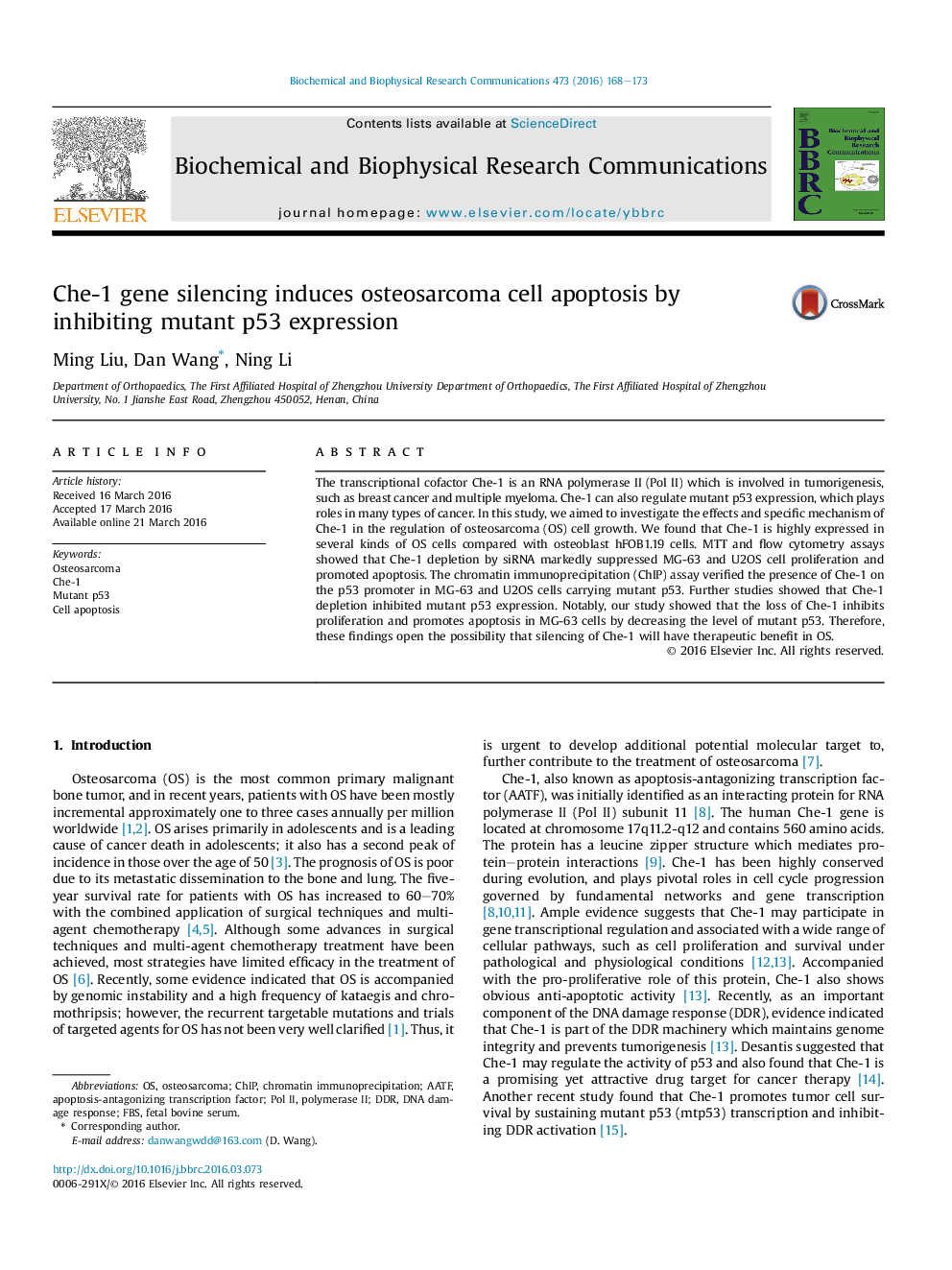| Article ID | Journal | Published Year | Pages | File Type |
|---|---|---|---|---|
| 1927873 | Biochemical and Biophysical Research Communications | 2016 | 6 Pages |
•Che-1 is highly expressed in several kinds of OS cells.•Che-1 depletion suppressed MG-63 and U2OS cell growth.•Che-1 is existed in the p53 promoter in MG-63 and U2OS cells.•Che-1 depletion inhibited mutant p53 expression.•Che-1 depletion inhibits cell growth by decreasing the level of mutant p53.
The transcriptional cofactor Che-1 is an RNA polymerase II (Pol II) which is involved in tumorigenesis, such as breast cancer and multiple myeloma. Che-1 can also regulate mutant p53 expression, which plays roles in many types of cancer. In this study, we aimed to investigate the effects and specific mechanism of Che-1 in the regulation of osteosarcoma (OS) cell growth. We found that Che-1 is highly expressed in several kinds of OS cells compared with osteoblast hFOB1.19 cells. MTT and flow cytometry assays showed that Che-1 depletion by siRNA markedly suppressed MG-63 and U2OS cell proliferation and promoted apoptosis. The chromatin immunoprecipitation (ChIP) assay verified the presence of Che-1 on the p53 promoter in MG-63 and U2OS cells carrying mutant p53. Further studies showed that Che-1 depletion inhibited mutant p53 expression. Notably, our study showed that the loss of Che-1 inhibits proliferation and promotes apoptosis in MG-63 cells by decreasing the level of mutant p53. Therefore, these findings open the possibility that silencing of Che-1 will have therapeutic benefit in OS.
